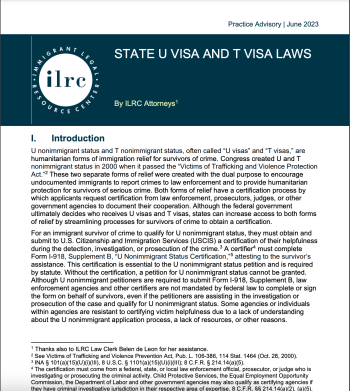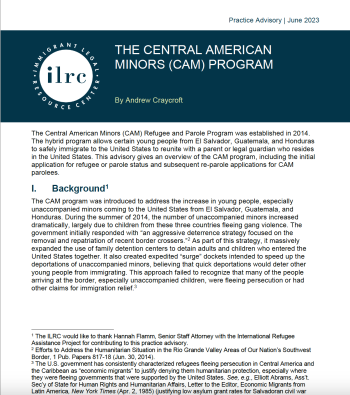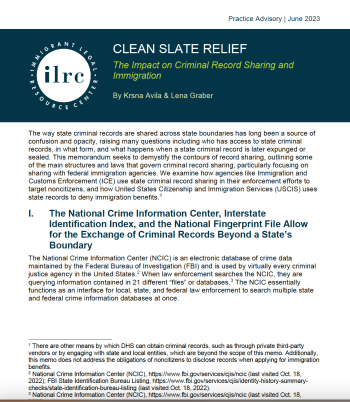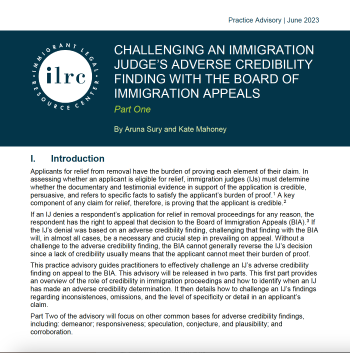The Central American Minors program allows qualifying children in El Salvador, Guatemala, and Honduras to enter the United States and live here lawfully if they have a parent or legal guardian in the United States with certain kinds of immigration status. This fact sheet provides information on basic eligibility and where to go for help.
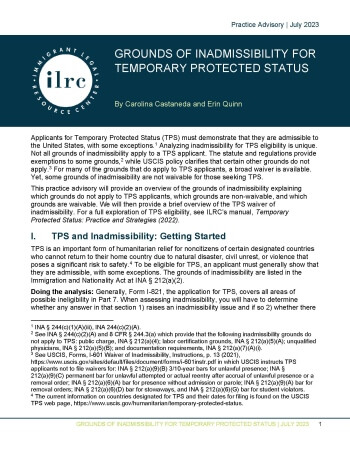
This practice advisory provides an overview of the grounds of inadmissibility for Temporary Protected Status (TPS) explaining which grounds do not apply to TPS applicants, which grounds are non-waivable, and which grounds are waivable. It also offers an overview of the TPS waiver of inadmissibility.
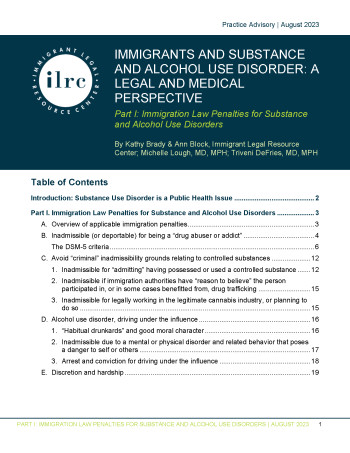
Immigration law demonizes people whom it labels as “drug abusers and addicts,” “habitual drunkards,” and “alcoholics.” The implication is that they are morally weak, dangerous, or evil. An immigrant who comes within such a category can be found inadmissible and ineligible to establish good moral character, and can be denied several forms of immigration relief as well as naturalization. But from a scientific perspective, these people suffer from a substance use disorder (SUD), a medical condition that frequently arises after the person has undergone severe trauma. Substance Use Disorder is a growing health crisis that currently affects over 20 million people in the United States.
This Advisory is written by immigration attorneys and medical doctors specializing in SUD, to examine the issue from both perspectives. Part I of the advisory discusses the several immigration law penalties based on substance use (even when use has not risen to a disorder) and suggests legal defense strategies. Part II of the advisory reviews current medical information about the disorders and discusses how this information can address questions that arise in immigration proceedings.
This Advisory is written by immigration attorneys and medical doctors specializing in SUD, to examine the issue from both perspectives. Part I of the advisory discusses the several immigration law penalties based on substance use (even when use has not risen to a disorder) and suggests legal defense strategies. Part II of the advisory reviews current medical information about the disorders and discusses how this information can address questions that arise in immigration proceedings.
